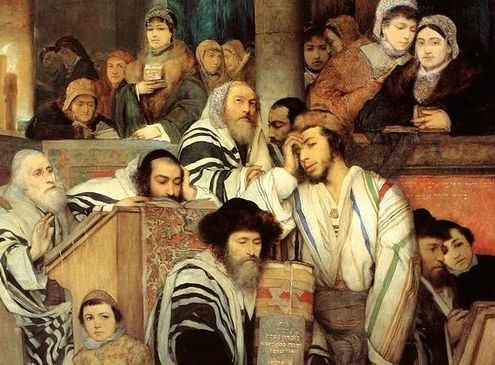Why we all fast on Yom Kippur
Herut Shitrid vividly recalls the first Yom Kippur she fasted. She was only 10, but somehow she was able to make it through the whole day.
“I felt proud,” she says nearly two decades later. “I was so proud that I could do it.”
These days, Shitrid spends much of her time serenading with her harp the passersby at Jaffa Gate in Jerusalem’s Old City. But back when she was growing up in the southern Israeli city Beersheba, fasting on Yom Kippur was one way to emulate the adults’ process of teshuva, to repent, or to return to your faith and your highest self.
“If we’re asking G-d to delete our sins, we have to show Him we’re willing to sacrifice a little bit,” Shitrid says.
Indeed, that sense of overcoming our own bodily needs to invest every moment of the day in the act of repentance is one of the mainstays of the fasting experience. But afflicting ourselves comes in a number of forms. In addition to not working and eschewing food and drink, Jews on Yom Kippur traditionally don’t wear leather shoes or any other leather garment such as belts; don’t bathe, swim or wash; don’t use perfumes or lotions, and avoid marital relations.
Yom Kippur is a legal holiday in Israel, with no radio or TV, buses or trains, and certainly no shopping. (History buffs may recall that one Yom Kippur did see a broadcast: during the Yom Kippur War in 1973, to alert the Israeli citizenry to a massive attack by Egypt and Syria).
In today’s heavily secular Israel, along with bicycling on (nearly empty) streets, fasting is one traditional observance that is stubbornly clung to — nearly three-quarters of Israelis planned to fast last year. No wonder Israelis of all stripes wish each other a “tsom kal” (easy fast) or “tsom mo’iil” (beneficial fast).
Israelis, of course, are not alone in this practice. Regardless of what they do the rest of the day, many Jews fast on Yom Kippur. But why?
“When we walk around with a full belly, we develop a sort of haughtiness, a sense of self-satisfaction,” says Rabbi Avi Moshel of Jerusalem. “So in the 25 hours of fasting, we actually put ourselves in a state of humility.”

 61.0°,
Mostly Cloudy
61.0°,
Mostly Cloudy 




